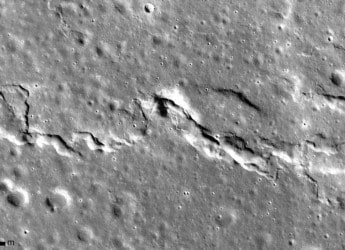- Home
- Science
- Science News
- NASA, IIT Madras Researchers Study Microbes on ISS to Understand Risks Associated With Space Travel
NASA, IIT-Madras Researchers Study Microbes on ISS to Understand Risks Associated With Space Travel
NASA, IIT-Madras team’s study was inspired by earlier observations of the dominance of Klebsiella pneumoniae on the surfaces of the ISS.

Photo Credit: IIT Madras
This identified pathogen has been known to cause pneumonia
The Indian Institute of Technology-Madras and NASA Jet Propulsion Laboratory (JPL) researchers have studied the interactions between microbes in the International Space Station (ISS), the institute said on Friday.
A key finding is that a microbe that resides on the ISS, was found to be beneficial to various other microorganisms but hampered the growth of a fungus.
The study would help devise strategies for the disinfection of space stations to minimise any potential impact of microbes on the health of astronauts.
"Crews, during spaceflight, may have altered immunity and limited access to terrestrial medical facilities. Therefore, studying the microbes inhabiting the space station becomes important to understand the risks associated with short-term and long-term space travel on the health of astronauts," the IIT-Madras said in a press release.
Researchers from @iitmadras and @NASA have studied the interactions between microbes in the International Space Station (ISS) that will help devise strategies for the disinfection of space stations to minimise any potential impact of microbes on the health of astronauts. pic.twitter.com/nkA1yfE8Ec
— IIT Madras (@iitmadras) October 21, 2022
The present study was inspired by the earlier observations of the dominance of Klebsiella pneumoniae, a bacteria, on the surfaces of the ISS.
This pathogen has been known to cause pneumonia and other nosocomial (hospital-acquired) infections. The researchers were broadly interested in understanding how this bacteria affects the growth of other microbes in the vicinity and the possible implications it could have.
The researchers analysed the microbial sample data taken across three space flights at seven locations on the ISS. The study found that Klebsiella pneumoniae, a major microbe that resides on the ISS, is beneficial to various other microbes also present on the ISS, especially the bacteria from the Pantoea genus.
However, it was found that its presence was hampering the growth of Aspergillus fungus. This computational observation was further tested through laboratory experiments, and it was found that the presence of K. pneumoniae was indeed detrimental to the growth of the Aspergillus fungus.
Dr Karthik Raman, associate professor at the Bhupat & Jyoti Mehta School of Biosciences and a core member of the Robert Bosch Centre for Data Science and Artificial Intelligence (RBCDSAI), IIT Madras, collaborated with Dr Kasthuri Venkateswaran, senior research scientist at JPL. The work has been peer-reviewed and published in the esteemed international journal Microbiome.
Get your daily dose of tech news, reviews, and insights, in under 80 characters on Gadgets 360 Turbo. Connect with fellow tech lovers on our Forum. Follow us on X, Facebook, WhatsApp, Threads and Google News for instant updates. Catch all the action on our YouTube channel.
Related Stories
- Samsung Galaxy Unpacked 2026
- iPhone 17 Pro Max
- ChatGPT
- iOS 26
- Laptop Under 50000
- Smartwatch Under 10000
- Apple Vision Pro
- Oneplus 12
- OnePlus Nord CE 3 Lite 5G
- iPhone 13
- Xiaomi 14 Pro
- Oppo Find N3
- Tecno Spark Go (2023)
- Realme V30
- Best Phones Under 25000
- Samsung Galaxy S24 Series
- Cryptocurrency
- iQoo 12
- Samsung Galaxy S24 Ultra
- Giottus
- Samsung Galaxy Z Flip 5
- Apple 'Scary Fast'
- Housefull 5
- GoPro Hero 12 Black Review
- Invincible Season 2
- JioGlass
- HD Ready TV
- Latest Mobile Phones
- Compare Phones
- Vivo V70
- Vivo V70 Elite
- Google Pixel 10a
- Tecno Camon 50
- Tecno Camon 50 Pro
- Lava Bold N2
- Vivo V60 Lite 4G
- Tecno Pova Curve 2 5G
- Asus Vivobook 16 (M1605NAQ)
- Asus Vivobook 15 (2026)
- Infinix Xpad 30E
- Brave Ark 2-in-1
- boAt Chrome Iris
- HMD Watch P1
- Xiaomi QLED TV X Pro 75
- Haier H5E Series
- Asus ROG Ally
- Nintendo Switch Lite
- Haier 1.6 Ton 5 Star Inverter Split AC (HSU19G-MZAID5BN-INV)
- Haier 1.6 Ton 5 Star Inverter Split AC (HSU19G-MZAIM5BN-INV)






![[Partner Content] OPPO Reno15 Series: AI Portrait Camera, Popout and First Compact Reno](https://www.gadgets360.com/static/mobile/images/spacer.png)









